John Joseph McDonnell served with the Lancashire Fusiliers, possibly having served with them for ten years since he was a boy soldier. He volunteered for airborne forces and completed his training in February 1942.
He qualified as a military parachutist on Course 8 which ran at RAF Ringway from 10 to 24 February 1942. Sgt McDonnell was posted to 5 Platoon, B Company, 3rd Parachute Battalion.
Sgt McDonnell soon saw active service in North Africa with the 3rd Para Bn and whilst there he was awarded a Distinguished Conduct Medal for ‘the most conspicuous gallantry and devotion to duty’ when he took out a number of machine guns and then captured prisoners even when out of ammunition. He wrote to his mother that he had been given the medal ‘for being a good boy’. The announcement of his award appeared in the Supplement to the London Gazette on 22 April 1943.
"For most conspicuous gallantry and devotion to duty on 26 Feb 43 at RAGOUBET EL ARAN, BOUARADA (Tunisian Sheet 417097). During a strong attack by the enemy who had overrun one of our positions, Sjt McDonnell went forward alone, under heavy machine gun fire, and recaptured the post, capturing five of the enemy together with the M.G. Meanwhile another party of the enemy had worked round his right flank to surround him. Indicating the target to his section, who pinned them to the ground, he dashed forward and killed all except one whom he took prisoner. Continuing up the hill, he led his section under intense M.G. fire and captured another M.G. post turning the captured M.G. onto Pt 375 from which at least 3 M.G’S were firing. Without hesitation he attacked this nest with grenades, silenced the M.G., and killed or captured all the occupants, thereby enabling the counter-attack force to continue and regain all positions. Observing large numbers of enemy withdrawing, he doubled his section down the hill, and although suffering losses from heavy enemy fire, he succeeded in compelling large numbers to surrender in spite of the fact that by this time his ammunition was exhausted.
Previously on 24 Feb 43 in the same area his platoon was attacked by a strong patrol which was driven off. As soon as he saw that the patrol was withdrawing this N.C.O. without hesitation and
entirely alone, at point blank range, jumped over our wire and ran after them and compelled two to surrender. The bravery and initiative displayed by this N.C.O. on these and other occasions have been an inspiration to all ranks."
Read John J Lawson's MM citation here. John was involved in the same action.
Recommended by:
RG Pine-Coffin. Lieut. Col. Commander 3rd Bn The Parachute Regt AAC
E Flavell. Brigadier. Commander 1 st Parachute Brigade. 18 march 1943.
C Allfrey. Lieutenant General, Commander, 5 Corps. 28 March 1943.
K Anderson. Lt-Gen. G.O.C. in C, First Army. 2 April 1943.
On 20 December 1944 Sgt McDonnell was granted an immediate emergency commission from the ranks to 2nd Lt, which he relinquished on 19 January 1949 returning to the ranks.
He was re-commissioned as an officer in June 1952, while serving with the Royal Electrical and Mechanical Engineers as a Warrant Officer Class II. He was awarded the Long Service and Good Conduct Medal in 1954
John McDonnell was promoted to Captain in 1957 and retired in June 1961.

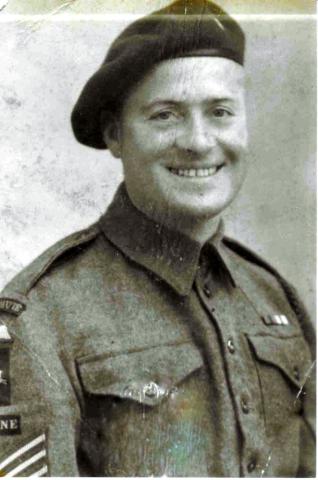
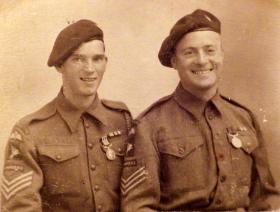
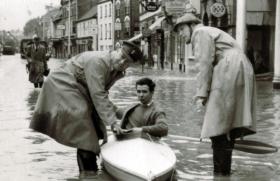
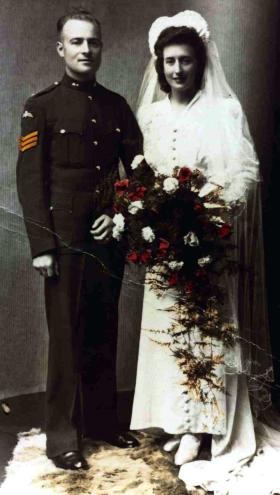
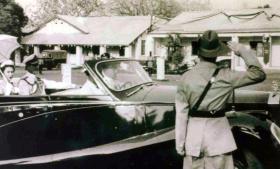
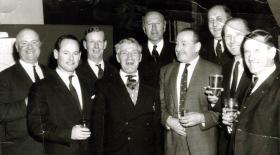
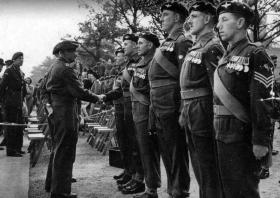
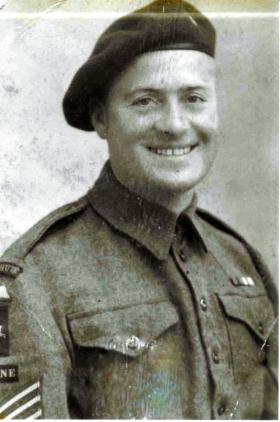
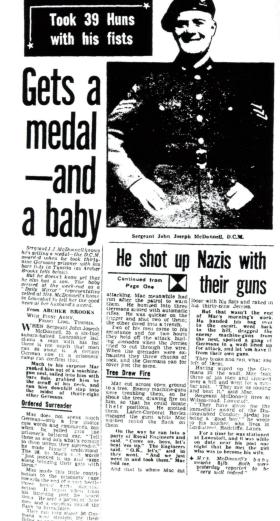
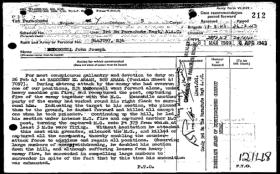
Latest Comments
He believed it was the only way he could get an education. While he had earned a scholarship to grammar school, his widowed Mom (my Nanny McDonnell) could not afford the uniform.
He was around 21 when he was first sent to a war zone. He was a British peacekeeper in China during the Second Sino-Japanese War.
He did plan on leaving the Army to join the police force, but on his way back to England in 1939 WWII broke out.
Add Comment
In order to add comments you must be registered with ParaData.
If you are currently a ParaData member please login.
If you are not currently a ParaData member but wish to get involved please register.